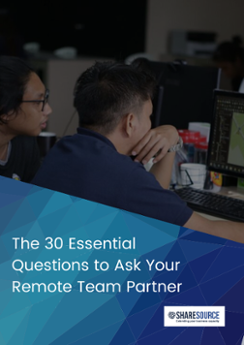With the COVID-19 pandemic bringing the economy and many ‘unicorns’ (a term used in the venture capital industry to describe a startup company with a value of over $1billion) with them to its knees, an entirely different approach to venture capital and funding is required.
As Marker (a new Medium publication that makes you smarter about your business and changes the way you think about the future) reports “Unicorns Are Out, Profits Are In”. It highlights a new VC model called ‘Indie.vc.’ (started by Bryce Roberts, Mark Jacobsen and legendary Silicon Valley entrepreneur, Tim O’Reilly as an experiment in 2005.) Startups receive a modest funding amount ($100,000 to $1million) - along with a simple term sheet - and the expectation they’ll grow responsibly and turn a profit. Founders are not pressured to grab market share and grow at all costs. No VCs are added to the board and no controlling stakes are given away. Founders can even buy back stakes by hitting certain revenue targets. Never did a funding model seem more ideally suited to the current economic climate. Roberts said he was ‘fed up with the myopic mindset of the venture capital world. Everything became about the billion-dollar business - when in reality, of the 100,000 companies that receive VC funding every year, only 0.06% ever become billion-dollar companies.’ Not only is this new approach to venture capital powering more sustainable startups, but it’s also funding more diverse founders. Thousands of businesses started by women and minorities have been largely ignored by a VC industry dominated by white men. Indie.vc. is changing this.
According to Forbes, the face of angel investing is changing too. Obviously some angels will be hesitant, at least for the time being, in investing millions of dollars into companies. And certainly, founders are being told to scrutinize their sales forecasts, hiring plans, costs, and every other business assumption even more closely during the COVID-19 outbreak. However, despite the current funding ecosystem and pandemic, there are sweeping foundational changes that are being made across the angel investment sector, as a whole. Seasoned investors are not oblivious to concerns around the pandemic but they are still looking to enhance their portfolio whilst more novice investors sit on the sidelines. The current trend is to diversify funds by investing in a portfolio of diverse industry silos, as opposed to the traditional focus on one silo. Research by Angel Capital Association and others highlights that the most successful angel investment portfolios are investments in multiple silos and geographies, which in turn allocate funds across diverse founders. With the world turning to more inclusion, now is the time for diverse founders, who are looking for funding, to take advantage of this. Previously unserved women and minority-owned startups will benefit from new and traditional angel groups looking to expand their portfolios across various silos and sectors. Data shows that these investment opportunities, amongst diverse founders, can have significant ROI. Mckinsey’s research shows that gender-diverse companies are 21% more likely to outperform their peers. And, the research goes on to prove that ethnically diverse companies outperform non-diverse companies by 35%.
Upheaval and chaos can create new opportunities as changing markets and obstacles create new challenges to solve and new ways of scaling your business. ‘Antifragile’, a term coined by Nassim Taleb to represent things that benefit from disorder, has become the new buzzword. It means not just being resilient and surviving during difficult times, but actually benefiting and flourishing. Anti-fragility is beyond resilience or robustness. The resilient resists shocks and stays the same; the anti-fragile gets better. During these challenging times, looking at ways to make your business more anti-fragile is well worth it. With funding being more difficult at the moment, offshore outsourcing is another avenue that could help protect your runway. In the startup world, runway is how long your company can survive if your income and expenses stay constant. Fundamentally, the main advantage of hiring remote team members in a developing country is the economic arbitrage you can take advantage of. The savings to be made for equivalent talent are substantial. Obviously this saving will directly impact your expenditure - with the knock-on effect of making your cash assets last longer and averting the need to source debt or capital raise, enabling you to grow faster.
Quality offshore outsourcing requires the assistance and guidance of experienced experts in the field who can help you build a passionate and dedicated team. Experts who are involved in your team’s productivity and growth - and who can help you reduce your risk, increase your diversity, and scale your business in challenging times. If this sounds like the right model for you, download our eBook, '30 Essential Questions to Ask a Provider Before You Outsource’. It will ensure you're informed and have the right questions to ask when considering the next step.



